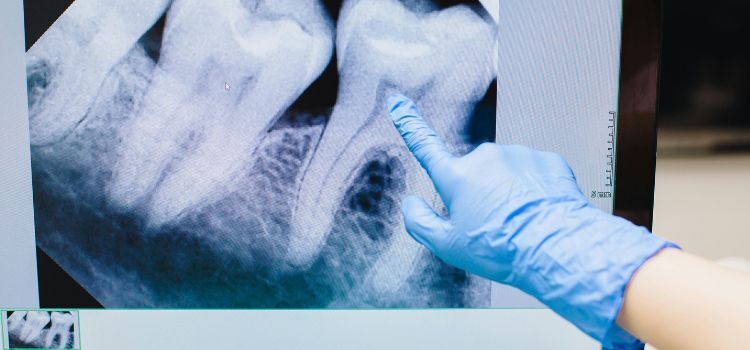Can Night Guards Cause Cavities?
30th Aug 2025

Wearing a night guard is a smart way to protect your teeth from grinding or clenching. But many people ask, “Can night guards cause cavities?”
The short answer: not directly. Cavities can happen if your night guard isn’t cleaned properly or doesn’t fit well.
In this post, we’ll explain what really causes the problem, how to keep your teeth safe, and what you can do to avoid issues while using a night guard.
Do Night Guards Cause Cavities? The Real Answer

Night guards don’t directly cause cavities. Studies have shown that mouthguards, if not cleaned properly, can harbor bacteria and yeasts, leading to oral lesions and potential dental caries. Daily sanitization is crucial to reduce microbial loads.
When a dirty night guard sits on your teeth overnight, it can trap food particles, plaque, and moisture. This makes it easier for bacteria to stick to your teeth and lead to tooth decay.
The key thing to remember: It’s not the night guard itself, but how it’s used and cared for that can cause problems.
Related Articles:
How Night Guards Can Contribute to Tooth Decay
While night guards don’t cause cavities on their own, certain habits can increase the risk of tooth decay:
Not cleaning your night guard daily
Bacteria from your mouth and leftover food can stick to the guard. If not cleaned, it stays on your teeth all night.
Storing it while it’s still wet
A damp night guard stored in a closed container can grow bacteria and mold.
Using a poor-fitting or worn-out guard
Gaps between the guard and your teeth can trap bacteria and lead to plaque buildup.
Wearing over-the-counter guards for too long
These guards aren’t made to last and may become rough or hold bacteria over time.

- Most Popular
- Hard Outside, Soft Inside
- 2MM Thick
- Moderate / Heavy

- Most Durable
- Hard Materials
- 1.5MM Thick
- Heavy / Severe

- For Day Time Use
- Thin, Barely Visible
- 1MM Thick
- Light / Moderate

- For Clenching
- Flexible & Soft
- 1.5MM Thick
- Light / Moderate
Night Guard Hygiene Tips to Prevent Cavities
Taking care of your night guard is simple—and it goes a long way in protecting your teeth. Here are some tips to keep your guard clean and cavity-free:
Rinse it every morning
After wearing your guard, rinse it with cool water to remove saliva and debris.
Brush it gently
Use a soft toothbrush (no toothpaste—it can be too abrasive) and a mild soap or non-alcoholic cleaner to gently scrub the guard.
Do a weekly deep clean
Soak it in a denture cleaner, retainer cleaner, or a mix of water and baking soda once a week.
Dry it completely before storing
Always let your night guard air-dry before putting it in its case. Moisture encourages bacteria growth.
Use a ventilated case
Store your guard in a clean case with air holes to keep it dry and fresh.
Wash the case too
Clean your night guard case regularly—it can build up bacteria over time.
Signs Your Night Guard Might Be Harming Your Teeth

If your night guard isn’t clean or doesn’t fit right, it could start to affect your teeth and gums. Here are a few warning signs to watch for:
Tooth sensitivity in the morning
This could be a sign of trapped bacteria or pressure on the teeth.
Bad breath or a strange taste
These often come from bacteria buildup on the guard.
White spots or plaque on your teeth
If your guard isn’t cleaned properly, it may increase plaque around your teeth.
Red or irritated gums
A dirty or ill-fitting guard can lead to gum inflammation or soreness.
Visible buildup on the guard
Yellow or white residue means it’s time for a deep clean—or maybe a replacement.
Note: If you notice any of these signs, it’s a good idea to check your cleaning routine or speak with your dentist.
Related Articles:
When to See Your Dentist About Night Guard Issues
A night guard is meant to protect your teeth, but if it starts causing discomfort or other issues, it’s best to talk to your dentist.
Signs to watch out for include sore or sensitive teeth, gum irritation, a bad smell that won’t go away even after cleaning, visible buildup, or a poor fit.
These can mean your guard needs a better cleaning routine, adjustment, or replacement. Your dentist can check what’s going on and help you stay on track with safe, effective protection.
Conclusion
Night guards don’t cause cavities, but poor cleaning and a bad fit can increase your risk. Keep yours clean, dry, and well-fitted to protect your teeth. And if you’re ever unsure, your dentist can help you make sure your night guard is doing its job—keeping your smile healthy.
If you're looking for a safer, more hygienic option, try a custom night-fit guard from Pro Teeth Guard. Our guards are made in a dental lab, delivered to your door, and backed by a 110% money-back guarantee—so you can protect your teeth with confidence.
References:
- Glass, R. T., Conrad, R. S., Köhler, G. A., Warren, A. J., & Bullard, J. W. (2011, May). Microbiota found in protective athletic mouthguards. Sports Health, 3(3), 244–248. https://doi.org/10.1177/1941738111404869

- Most Popular
- Hard Outside, Soft Inside
- 2MM Thick
- Moderate / Heavy

- Most Durable
- Hard Materials
- 1.5MM Thick
- Heavy / Severe

- For Day Time Use
- Thin, Barely Visible
- 1MM Thick
- Light / Moderate

- For Clenching
- Flexible & Soft
- 1.5MM Thick
- Light / Moderate
